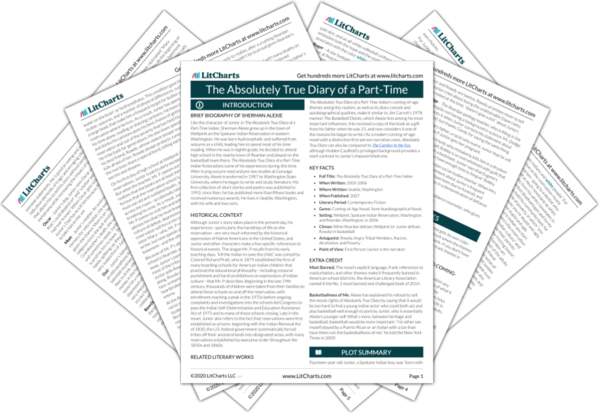LitCharts assigns a color and icon to each theme in The Absolutely True Diary of a Part-Time Indian, which you can use to track the themes throughout the work.
Identity, Belonging, and Coming-of-Age
Racism, Poverty, and Alcoholism
Confessions, Revenge, and Forgiveness
Drawing, Writing, and Junior’s Cartoons
